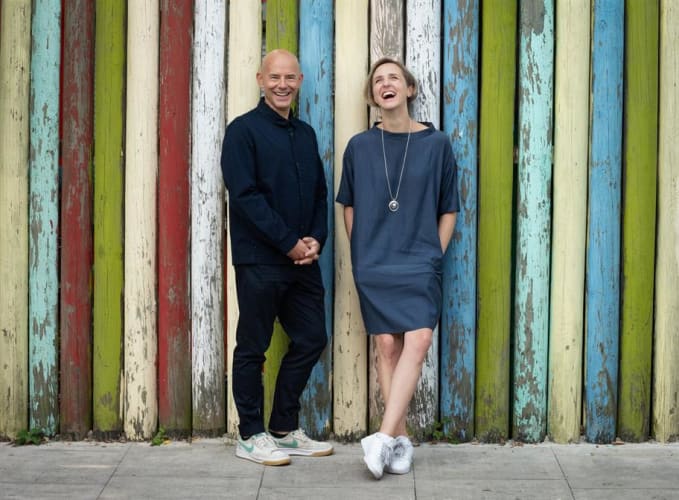The Royal Shakespeare Company has been one of the jewels in the United Kingdom’s theatrical crown since its founding by the future Sir Peter Hall in 1959 and historically through predecessors for close to a century and a half. Over that time, it has been led by a series of enterprising and inspiring artistic directors from its base in Stratford-upon-Avon.
Its letter headings will soon look very different as a result of a series of coincidental changes.
Overnight, its Patron and President have become King Charles III and William, Prince of Wales, while almost simultaneously the theatre has announced the identities of its new joint artistic directors, Daniel Evans and Tamara Harvey, who will take up their posts in the middle of next year.
They have big boots to fill, since Gregory Doran was both a safe pair of hands but also one of the finest Shakespearean directors of his generation and, in many eyes, the best of all.
Having very sadly lost his partner Sir Anthony Sher at the end of last year, he must surely be odds-on for a richly deserved knighthood at the earliest opportunity and can then look forward to new challenges in the future.
Like every theatre in the country, the RSC will have been struggling desperately against the commercial and financial constraints imposed by the COVID pandemic and, hard on its heels, the cost-of-living crisis.
The company runs a large theatre space and tours on a regular basis, neither of which is ideal at a time where energy costs have spiralled out of control and fuel followed suit. Therefore, the new supremos will have their work cut out to create an exciting and challenging programme at the same time as maintaining solvency.
They are a fascinating pairing, who are refreshingly young to take on such roles in this day and age, neither yet 50.
Welshman Daniel Evans originally made his name as an actor equally adept in musicals and straight plays, mixing everything from Shakespeare and Stephen Sondheim to Sarah Kane. Subsequently, he cut his teeth as an independent director before being thrust into the limelight when he was appointed Artistic Director at Sheffield Theatres, where he spent half a dozen successful years from 2009, before moving to Chichester Festival Theatre and masterminding a series of West End transfers.
Tamara Harvey has had a relatively low-key career, marked by the fact that she does not currently have a Wikipedia page. That must all be about to change. She also spent time as an independent director before taking over the reins at Theatr Clywd just as Evans joined Chichester.
They were welcomed by Shriti Vadera, Chair of the RSC Board, who is clearly excited at the prospect of a new pairing stating, “their partnership heralds an exciting vision for the future of the RSC to attract world-class artistic talent, captivate today’s audiences with Shakespeare, classics and new work, and increase radically the reach and impact of our pioneering learning, partnerships and digital work.”
Ignoring the financial challenges, the job ahead will involve a difficult balancing act, trying to appease those who expect the RSC to deliver traditional Shakespearean productions and modernisers with a desire for change. The new ADs have already set out a set of initial intentions which might form the basis for an impending mission statement.
Daniel Evans’s initial foray included the view, “I was fortunate to see so many inspiring performances at Stratford during my teenage years; and later celebrated my 21st birthday there during my first professional job post-drama school. So, to be returning to the RSC as its Co-Artistic Director is immensely meaningful to me. To do so alongside Tamara is a joy and a privilege. We share deep-rooted values and an ambitious vision for the Company, and we're both looking forward to working with Catherine [Mallyon, Executive Director] and the team to begin this new, exciting chapter in the RSC's story.”
Tamara Harvey was somewhat more forthcoming about her vision: “stepping into this job is both the most exciting and the most daunting thing I’ve ever done. The great joy of working in partnership with Daniel, an artist I admire beyond measure, is that we share both that excitement and that awe at becoming the next custodians of this amazing company. We bring a shared belief in all that the RSC can be—a home for radical, relevant theatre made by artists from across the UK and the wider world. A global community inspired by Shakespeare, bringing together myriad voices to tell the stories of our time—and of all time.”
As the theatrical community tries to recover from a series of devastating blows and struggles to return to normality, this announcement from the RSC should offer a sense of hope and expectation which is much needed by all in the community.
